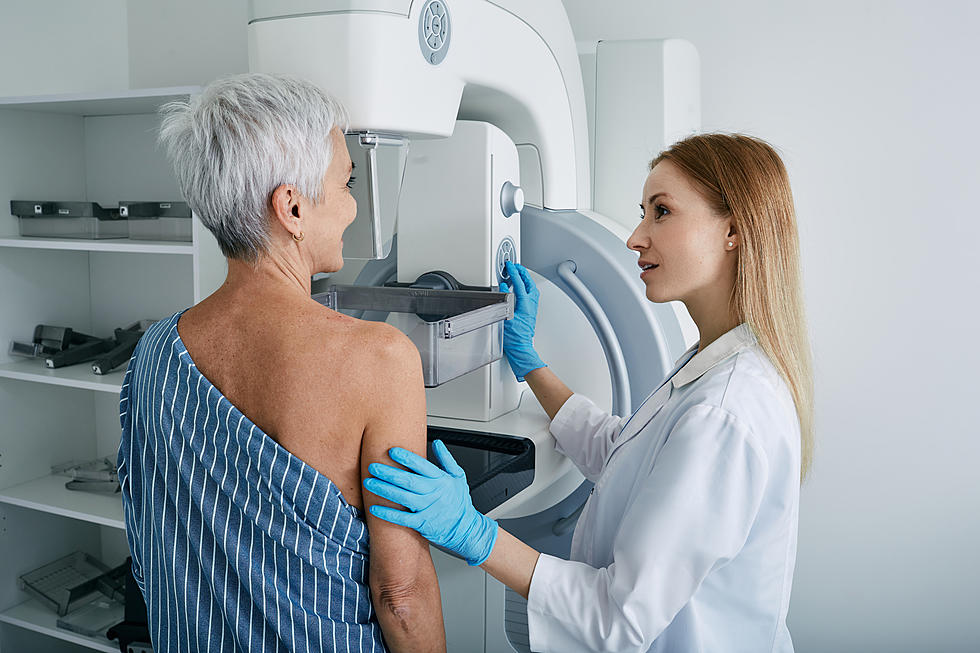
NJ residents should put this at the top of their 2024 ‘to do’ list
🔵 The American Cancer Society urges everyone to get cancer screenings in 2024
🔵 Early detection is the key to saving lives
🔵Most screenings are determined by a person's age and gender.
As we begin 2024, The American Cancer Society is reminding everyone to prioritize their health, know their cancer risk, and consider getting screened for different cancers.
Simply put: Screening saves lives, said Natasha Coleman, Vice President of Community Impact for the American Cancer Society Northeast.
“So, the earlier we can detect cancer and diagnose cancer, the better your treatment options will be. That is for both men and women in what we call ‘average risk.’ Average risk, meaning they have no history of cancer, no family history, or their medical history or they are pretty much healthy,” Coleman said.
She encouraged people to not wait for symptoms to have a cancer screening.
Top Cancer Screenings for 2024
The top two cancer screenings for women are breast cancer and cervical cancer screenings. Getting a mammogram every year, especially after the age of 40 is very important, Coleman said. Women are still getting diagnosed with cervical cancer so speaking to their doctor or gynecologist about getting regular pap smears can help save lives, as well.
For men, prostate cancer is the top screening to get in 2024. Coleman encourages men to speak to their doctor about their prostate health and when is the right time to get screened, especially if there is a family history, is vital.
For both men and women, she said the top cancer screening is colorectal cancer. It is an opportunity to catch any form of colon cancer before it even starts. The average age for colorectal cancer screening is typically before the age of 45. This is not a yearly screening, so both men and women in that age group should discuss when it’s best to start getting screened.
Also, both men and women should be screened for lung cancer, especially for smokers, or for those who have a history of tobacco smoking.
“Talk to your doctor about lung cancer screening. That’s only for those high-risk individuals, men, and women who have smoked or have a history of smoking tobacco products,” Coleman said.
Who is eligible for these cancer screenings?
Everyone is eligible. The only factors that come into play are gender and age, Coleman said. For example, women at the age of 40 should start getting screened for breast cancer. You don’t necessarily have to have a family history or symptoms to get screened for certain cancers.
What do screenings entail?
Every screening is different but every screening begins with a conversation with your primary care physician, Coleman said. Talk to your doctor about your overall health, and what screenings you should be getting based on your health, age, and gender.
Breast cancer screenings or mammograms involve X-rays and photos of the breasts using a mammography machine.
But, if you’re going in for a colonoscopy, that’s different. There’s a prep 24 hours before that screening which involves a liquid diet to clean you out. On the day of the screening, the individual is put under general sedation so doctors can scope the colon and view any polyps, or pre-cancerous cells, before cancer starts in the colon.
How to reduce cancer risk at home?
It all starts with taking on a healthy lifestyle, Coleman said. Eating a balanced diet of healthy, lean foods, drinking tons of water, avoiding processed foods, and engaging in physical activity are key. Incorporate at least 30 minutes of physical activity between four to five days a week, she added.
Avoid all tobacco products. If you’ve never smoked, don’t start. If you have in the past, do your best to stay away from it all.
The Statistics
The bottom line is that screening saves lives and early detection is the best chance for treatment and survival.
Nationally, one in three people will be diagnosed with cancer in their lifetime, Coleman said. “That is huge,” she said.
According to the American Cancer Society Cancer Facts and Figures in New Jersey, an estimated 56,150 new cases of cancer and 15,230 deaths from cancer were predicted in 2023.
Report a correction 👈 | 👉 Contact our newsroom
LOOK: Strange, weird methods used to extend the life of Christmas trees
Gallery Credit: Mike Brant
More From New Jersey 101.5 FM









